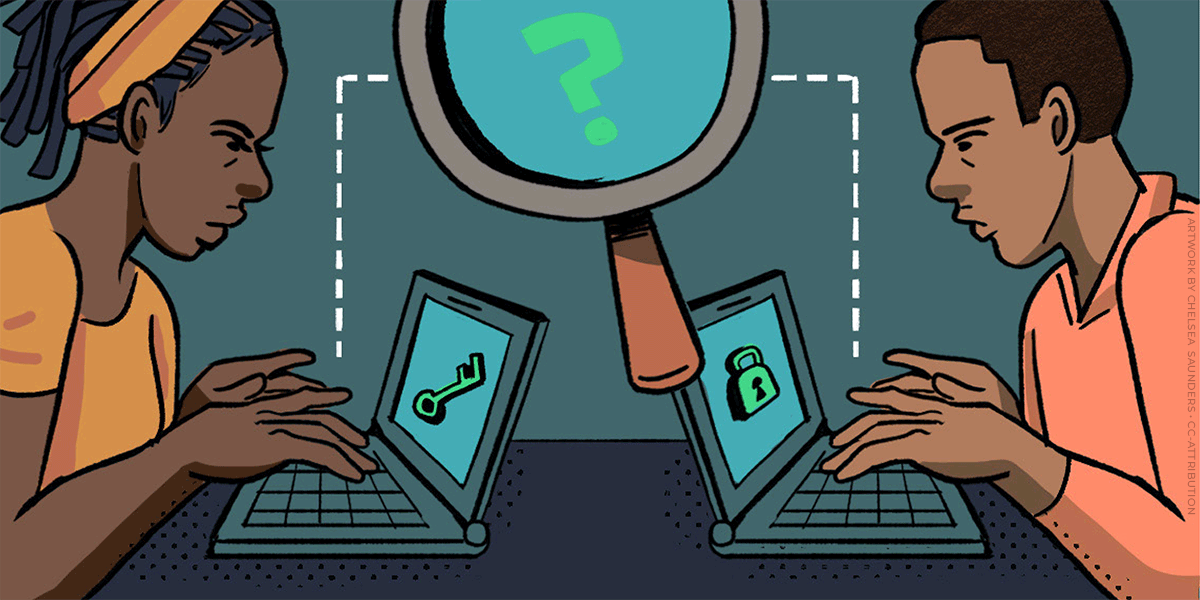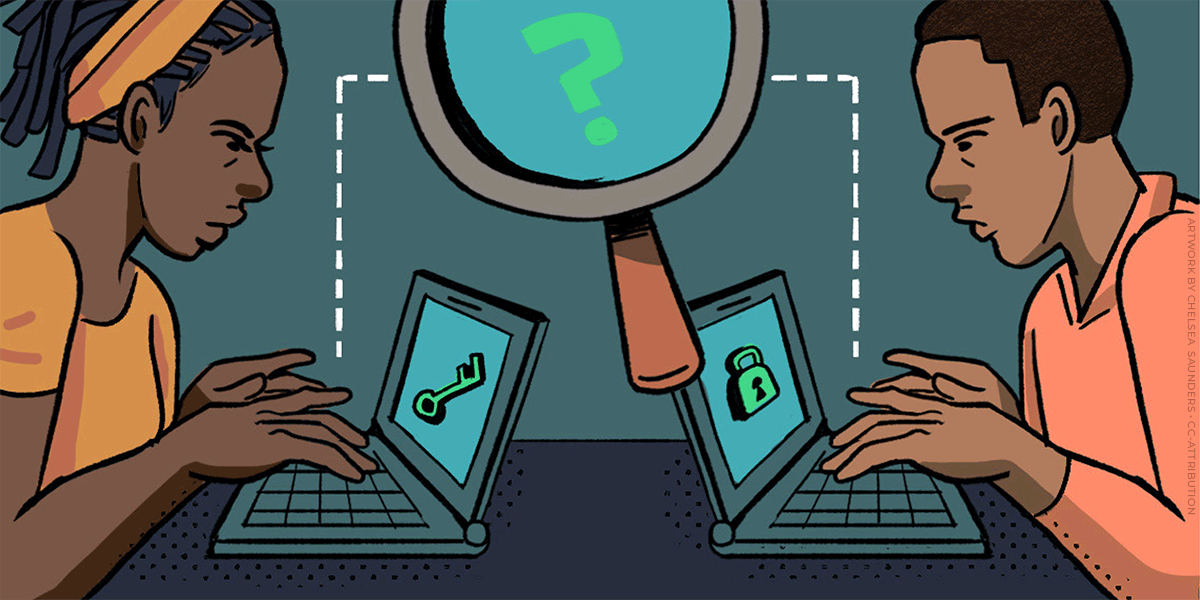In the wake of the 2024 election in the United States, many people are concerned about tightening up their digital privacy and security practices. As always, we recommend that people start making their security plan by understanding their risks. For most people in the U.S., the threats that they face and the methods by which they are likely to be surveilled or harassed have not changed, but the consequences of digital privacy or security failures may become much more serious, especially for vulnerable populations such as journalists, activists, LGBTQ+ people, people seeking or providing abortion-related care, Black or Indigenous people, and undocumented immigrants.
EFF has decades of experience in providing digital privacy and security resources, particularly for vulnerable people. We’ve written a lot of resources over the years and here are the top ten that we think are most useful right now:
1. Surveillance Self-Defense
Our Surveillance Self-Defense guides are a great place to start your journey of securing yourself against digital threats. We know that it can be a bit overwhelming, so we recommend starting with our guide on making a security plan so you can familiarize yourself with the basics and decide on your specific needs. Or, if you’re planning to head out to a protest soon and want to know the most important ways to protect yourself, check out our guide to Attending a Protest. Many people in the groups most likely to be targeted in the upcoming months will need advice tailored to their specific threat models, and for that we recommend the Security Scenarios module as a quick way to find the right information for your particular situation.
2. Street-Level Surveillance
If you are creating your security plan for the first time, it’s helpful to know which technologies might realistically be used to spy on you. If you’re going to be out on the streets protesting or even just existing in public, it’s important to identify which threats to take seriously. Our Street-Level Surveillance team has spent years studying the technologies that law enforcement uses and has made this handy website where you can find information about technologies including drones, face recognition, license plate readers, stingrays, and more.
3. Atlas Of Surveillance
https://atlasofsurveillance.org/
Once you have learned about the different types of surveillance technologies police can acquire from our Street-Level surveillance guides, you might want to know which technologies your local police has already bought. You can find that in our Atlas of Surveillance, a crowd-sourced map of police surveillance technologies in the United States.
4. Doxxing: Tips To Protect Yourself Online & How to Minimize Harm
https://www.eff.org/deeplinks/2020/12/doxxing-tips-protect-yourself-online-how-minimize-harm
Surveillance by governments and law enforcement is far from the only kind of threat that people face online. We expect to see an increase in doxxing and harassment of vulnerable populations by vigilantes, emboldened by the incoming administration’s threatened policies. This guide is our thinking around the precautions you may want to take if you are likely to be doxxed and how to minimize the harm if you’ve been doxxed already.
5. Using Your Phone in Times of Crisis
https://www.eff.org/deeplinks/2022/03/using-your-phone-times-crisis
Using your phone in general can be a cause for anxiety for many people. We have a short guide on what considerations you should make when you are using your phone in times of crisis. This guide is specifically written for people in war zones, but may also be useful more generally.
6. Surveillance-Self Defense for Campus Protests
https://www.eff.org/deeplinks/2024/06/surveillance-defense-campus-protests
One prediction we can safely make for 2025 is that campus protests will continue to be important. This blog post is our latest thinking about how to put together your security plan before you attend a protest on campus.
7. Security Education Companion
https://www.securityeducationcompanion.org/
For those who are already comfortable with Surveillance Self-Defense, you may be getting questions from your family, friends, or community about what to do now. You may even consider giving a digital security training session to people in your community, and for that you will need guidance and training materials. The Security Education Companion has everything you need to get started putting together a training plan for your community, from recommended lesson plans and materials to guides on effective teaching.
8. Police Location Tracking
One police surveillance technology we are especially concerned about is location tracking services. These are data brokers that get your phone's location, usually through the same invasive ad networks that are baked into almost every app, and sell that information to law enforcement. This can include historical maps of where a specific device has been, or a list of all the phones that were at a specific location, such as a protest or abortion clinic. This blog post goes into more detail on the problem and provides a guide on how to protect yourself and keep your location private.
9. Should You Really Delete Your Period Tracking App?
https://www.eff.org/deeplinks/2022/06/should-you-really-delete-your-period-tracking-app
As soon as the Supreme Court overturned Roe v. Wade, one of the most popular bits of advice going around the internet was to “delete your period tracking app.” Deleting your period tracking app may feel like an effective countermeasure in a world where seeking abortion care is increasingly risky and criminalized, but it’s not advice that is grounded in the reality of the ways in which governments and law enforcement currently gather evidence against people who are prosecuted for their pregnancy outcomes. This blog post provides some more effective ways of protecting your privacy and sensitive information.
10. Why We Can’t Just Tell You Which Messenger App to Use
https://www.eff.org/deeplinks/2018/03/why-we-cant-give-you-recommendation
People are always asking us to give them a recommendation for the best end-to-end encrypted messaging app. Unfortunately, this is asking for a simple answer to an extremely nuanced question. While the short answer is “probably Signal most of the time,” the long answer goes into why that is not always the case. Since we wrote this in 2018, some companies have come and gone, but our thinking on this topic hasn’t changed much.
Bonus external guide
https://digitaldefensefund.org/learn
Our friends at the Digital Defense Fund have put together an excellent collection of guides aimed at particularly vulnerable people who are thinking about digital security for the first time. They have a comprehensive collection of links to other external guides as well.
***
EFF is committed to keeping our privacy and security advice accurate and up-to-date, reflecting the needs of a variety of vulnerable populations. We hope these resources will help you keep yourself and your community safe in dangerous times.




